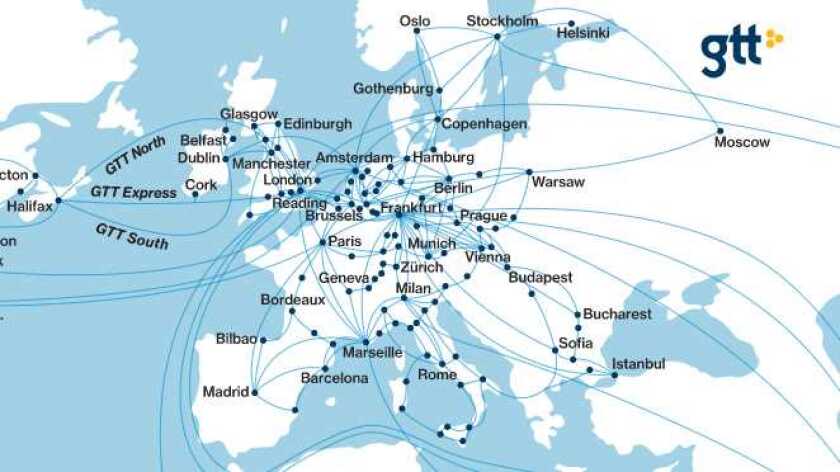They were hoping to make a decision and announce the deal at the end of August, and it is not yet clear why that has been delayed.
One likely reason is that in mid-August GTT announced it was going to delay reporting its quarterly results to the US financial regulator, the Securities and Exchange Commission: a 10-Q report, in US financial jargon.
But one member of the New York investment community, speaking to Capacity on the basis we’d protect his identity, said: “Everyone seems very calm about the 10-Q delay. People are sitting back and waiting.”
In its filing to the SEC at the time, GTT said: “The company identified certain issues related to the recording and reporting of cost of telecommunications services and related internal controls.”
Two weeks ago the New York Stock Exchange (NYSE), which lists GTT’s shares, said the company was not in compliance with its rules. The NYSE has the power to delist GTT’s shares, but it has granted an extension to 17 February 2021 for the filing to be delivered.
There are also different views about the amount of money on the table from bidders for Apollo, the name GTT is giving to its packaged infrastructure assets. (Apollo was the Greek and Roman god of the sun.)
One source said GTT had a bid of US$800 million. Another told us: “Current shareholders will be upset if the price is below $1.9 billion.”
GTT’s share price closed on Thursday night at $5.36, valuing the company at just $315 million. This is 36% up on the 52-week low of $3.94, but only a third of the 52-week high of $15.77.
One well-connected executive said: “I keep hearing the same message that potential investors are waiting to see when GTT will ‘hit the wall’ and then pick up the pieces for cents on the dollar. I really can’t see anybody sensible stumping up $2 billion for assets that are commoditised and a shrinking customer base of low margin business.”
GTT completed purchase of Hibernia Networks in January 2017 for $590 million, and Interoute at the end of May 2018 for $2.3 billion. After that deal the company claimed annualised revenue of $2 billion, including other acquisitions, such as MegaPath and Global Capacity.
One of the challenges, one source told Capacity, is that “there are two groups of creditors” interested in a restructure of GTT. One group, Capacity understands, has rights on the Apollo assets.
It’s perfectly possible that GTT’s new management team will decide to drop plans to sell its infrastructure division. In July it promoted chief revenue officer Ernie Ortega to be interim CEO, replacing Rick Calder, who led the company from 2007 and ran its acquisition strategy. (Incidentally, Calder still listed himself on LinkedIn as president and CEO of GTT as of this morning.)
Three months earlier, in April, Steve Berns became CFO, following the departure of Mike Sicoli in September 2019, and the interim tenure of Dan Fraser.
The policy of the new management team is not yet clear. “Why is Ortega interim?” asked one highly-placed industry observer. “Is there a search [for a permanent CEO] underway? Or is situation worse than being reported?”
GTT appointed two banks, Credit Suisse and Goldman Sachs, in November 2019 to look at what it called a “non-strategic and non-core asset divestiture exploratory process”, that included its “highly differentiated pan-European fibre assets, subsea transatlantic fibre and data centre infrastructure, which the company acquired as part of the Interoute and Hibernia acquisitions”.
One observer said to Capacity this week: “What’s the point of selling the infrastructure division?” If GTT became an asset-light services company, “AT&T could squeeze it”.
Another said: “Bottom line from what I’m hearing is that potential suitors are in a wait-and-see logic to see how low the enterprise value goes ... and then pounce to get GTT on the cheap.”
Capacity has not been able to identify the two companies that, our sources tell us, are interested in bidding. One possibility is Zayo, the US-based infrastructure and services company that is owned 50-50 by EQT of Sweden and Digital Colony of the US.
Jesper Aagaard, appointed this week to be Zayo’s managing director of Europe, spent most of the last decade at Interoute and stayed with GTT after the 2018 takeover.
Aagaard responded to Capacity’s questions last night about Zayo’s possible role: “I will not be able to comment on your questions.”
Bankers involved in the process did not respond to Capacity’s approach.






